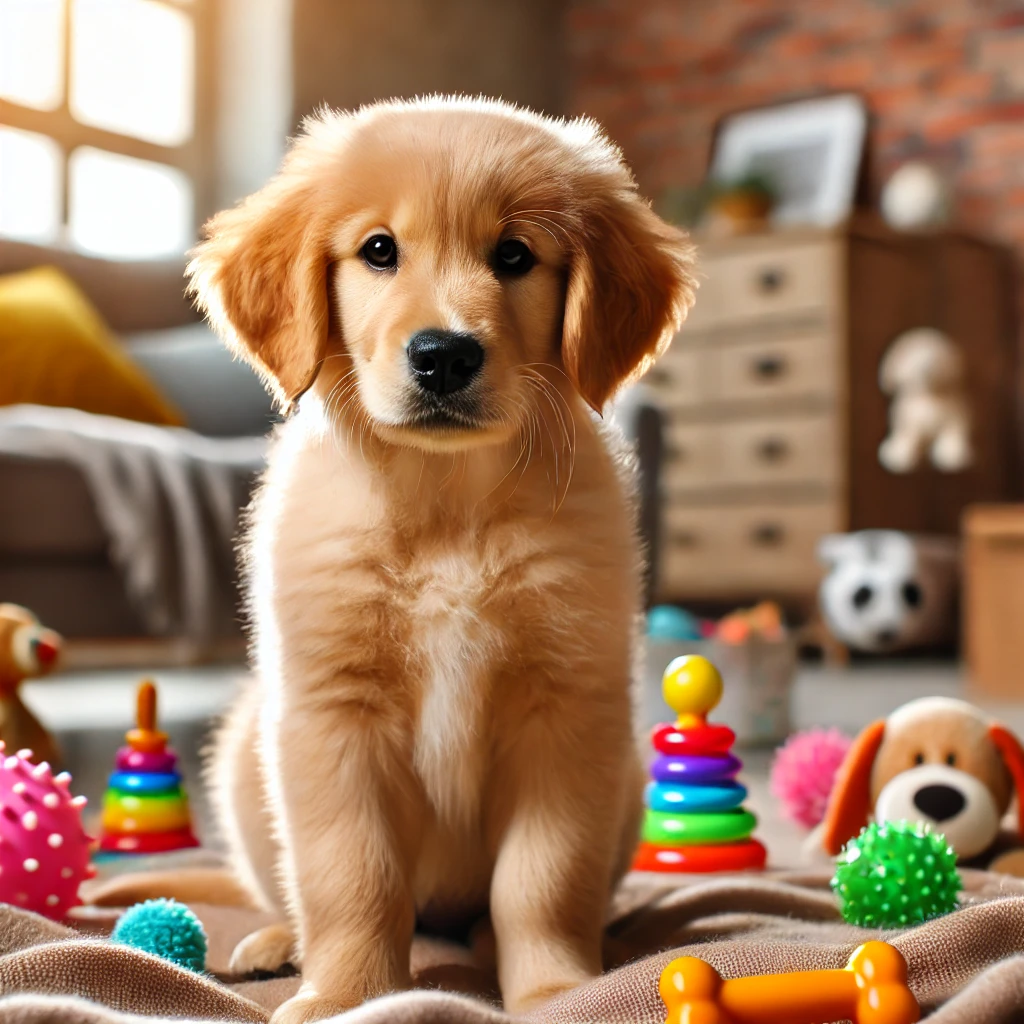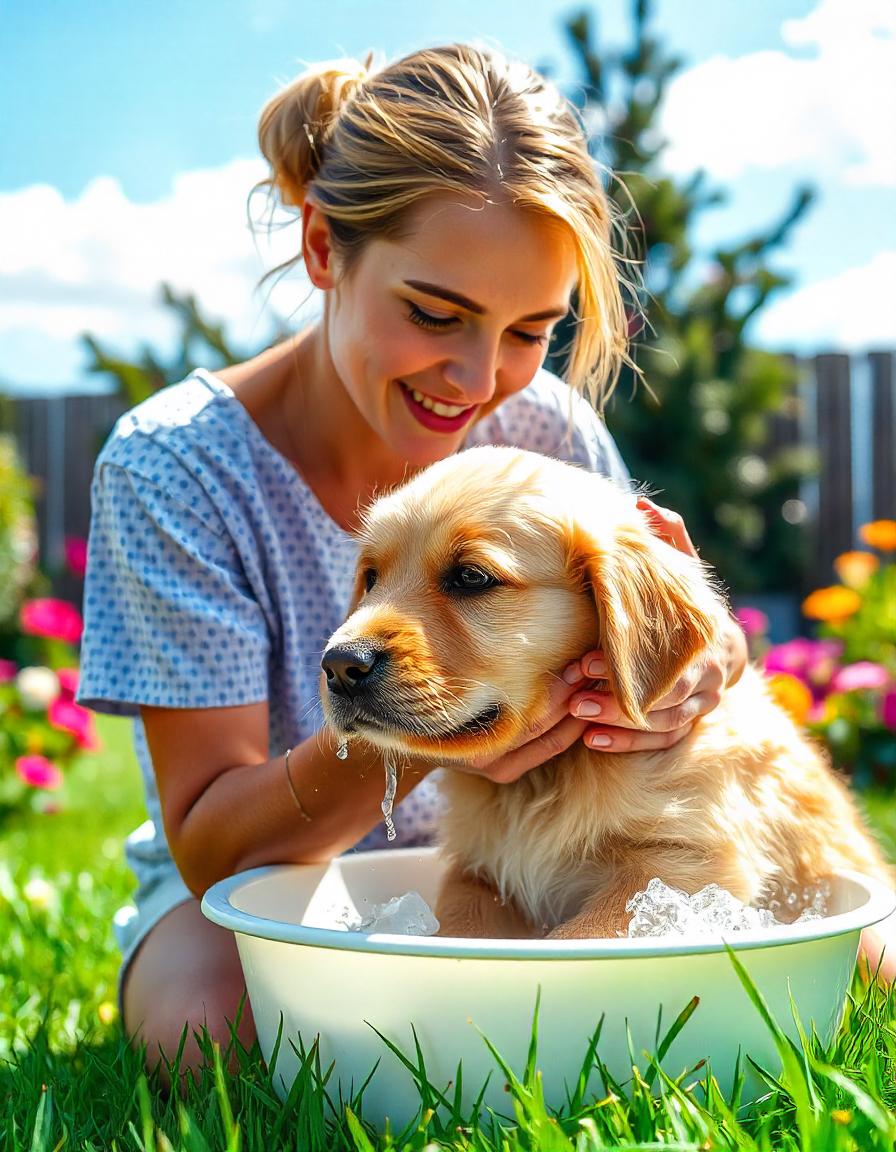Golden Retrievers are one of the most popular dog breeds worldwide, known for their friendly personalities and intelligence. If you’ve just welcomed a Golden Retriever puppy into your home, congratulations! But with great cuteness comes great responsibility. In this guide, we’ll walk you through everything you need to know to care for your furry friend, following the PAS (Problem-Agitation-Solution) copywriting framework.
We’ll avoid fancy adjectives and focus on practical, factual advice that ensures your pup grows up healthy and happy.
Problem: Common Challenges New Puppy Owners Face
Bringing a new puppy home is exciting, but it’s not without its challenges. Golden Retriever puppies, while adorable, can test your patience and require a lot of attention.
- House Training: Many new owners struggle with teaching their puppy where and when to go potty. Accidents in the house can be frustrating and time-consuming to clean.
- Chewing: Puppies explore the world with their mouths. This often means chewed furniture, shoes, and even walls.
- Socialization: Golden Retrievers are naturally friendly, but without proper socialization, they can develop fear or aggression toward new people, animals, or environments.
- Exercise Needs: Golden Retrievers are active dogs. Puppies, in particular, need regular playtime to burn off their seemingly endless energy.
- Health Concerns: From vaccinations to diet, ensuring your puppy’s health can feel overwhelming. Puppies are prone to conditions like worms and need a proper diet to support their growth.
Agitation: Why These Challenges Can’t Be Ignored
Failing to address these challenges early on can lead to long-term problems, both for you and your dog.
- Behavioral Issues: An untrained or poorly socialized Golden Retriever can become destructive, overly excitable, or even aggressive.
- Health Risks: Delayed vaccinations, poor diet, or lack of exercise can result in illnesses, stunted growth, or obesity.
- Frustration for Owners: Without proper guidance, new owners may feel overwhelmed, leading to strained relationships with their pet.
For example, a recent case study highlighted a family who adopted a Golden Retriever puppy but neglected to train or socialize her adequately. By six months, she was unmanageable, jumping on visitors, chewing furniture, and displaying anxiety in new environments. The family sought professional help and, with consistent training and proper care, turned things around—but it took months of effort that could have been avoided with early intervention.
Solution: A Step-by-Step Care Guide for Your Golden Retriever Puppy
Now that we’ve identified the challenges, let’s focus on actionable solutions. Here’s how to ensure your Golden Retriever puppy grows into a well-behaved, healthy, and happy dog.
1. Create a Safe Space
Your puppy needs a safe and comfortable environment to settle in. A crate or designated puppy zone can help:
- Crate Training: A crate provides a secure space for your puppy to rest and prevents accidents or chewing when unsupervised. Make it cozy with a soft bed and a chew toy.
- Puppy-Proofing: Remove hazards like electrical cords, small objects, and toxic plants from areas your puppy can access.
2. House Training Basics
Golden Retrievers are intelligent and can learn quickly with consistency. Follow these steps:
- Establish a Routine: Take your puppy outside first thing in the morning, after meals, and before bedtime.
- Positive Reinforcement: Reward your puppy with treats and praise every time they go potty in the right spot.
- Accident Management: If an accident happens, clean it thoroughly to remove odors and avoid scolding your puppy, as it may confuse them.
3. Feeding Your Puppy
Proper nutrition is crucial for your puppy’s growth and development. Here’s what to keep in mind:
- High-Quality Puppy Food: Choose a brand specifically formulated for large-breed puppies. Look for real meat as the first ingredient and avoid fillers like corn or by-products.
- Meal Schedule: Feed your puppy three to four small meals a day until they are six months old. Gradually transition to two meals a day as they grow.
- Avoid Harmful Foods: Never feed your puppy chocolate, grapes, onions, or fatty table scraps.
- Sample Meal Plan: Provide a detailed breakdown of a typical day’s meals, including portion sizes and timings.
4. Socialization and Training
Golden Retrievers thrive on companionship and benefit greatly from early socialization and training:
- Expose to New Experiences: Introduce your puppy to different people, sounds, and environments. Start slow and ensure each experience is positive.
- Basic Commands: Teach simple commands like “sit,” “stay,” and “come” using treats and praise.
- Enroll in Puppy Classes: Group classes are a great way to socialize your puppy and learn effective training techniques.
5. Managing Chewing
Chewing is a natural behavior for puppies but needs to be directed appropriately:
- Provide Chew Toys: Offer a variety of safe, durable toys to satisfy their chewing instincts.
- Redirect Behavior: If your puppy chews on something inappropriate, calmly redirect them to a toy.
- Puppy-Proof Areas: Keep valuable or dangerous items out of reach.
6. Exercise and Play
Golden Retriever puppies have high energy levels that need to be managed through exercise and play:
- Short Play Sessions: Puppies’ joints are still developing, so avoid strenuous activity. Instead, opt for short play sessions several times a day.
- Interactive Toys: Toys like puzzle feeders or balls can keep your puppy mentally and physically engaged.
- Leash Training: Start introducing a leash early to prepare for walks.
7. Health and Grooming
Regular veterinary care and grooming are essential for your puppy’s health:
- Vet Visits: Schedule vaccinations, deworming, and general check-ups as recommended by your vet.
- Brushing: Golden Retrievers have a double coat that needs regular brushing to prevent matting and reduce shedding.
- Bathing: Bathe your puppy only when necessary to avoid drying out their skin.
- Nail Trimming: Check and trim your puppy’s nails monthly to prevent discomfort.

Case Study: How Early Training Transformed Max’s Behavior
Max, a Golden Retriever puppy, was adopted by a first-time dog owner who struggled with his energetic behavior. Max frequently had accidents indoors, chewed on furniture, and pulled on the leash during walks. The owner decided to follow a structured care plan:
- Implemented Crate Training: Max quickly learned where to rest and stopped having accidents indoors.
- Enrolled in Puppy Classes: Socialization helped Max become more confident and less reactive to new environments.
- Switched to High-Quality Food: A proper diet improved Max’s energy levels and coat condition.
Within two months, Max’s behavior improved significantly, and he became a well-mannered companion.
Monitoring Your Puppy’s Progress
Caring for a Golden Retriever puppy is an ongoing process. Regularly evaluate their health and behavior:
- Weight and Growth: Check that your puppy is gaining weight at a healthy rate.
- Behavioral Milestones: Celebrate achievements like learning commands or mastering house training.
- Health Indicators: Look for signs of good health, such as bright eyes, a shiny coat, and regular energy levels.
If you notice any concerning changes, consult your veterinarian promptly.
Building a Lifelong Bond
Raising a Golden Retriever puppy takes time, patience, and effort, but the rewards are immeasurable. These dogs are loyal and loving companions who thrive when given proper care and attention. By addressing challenges early and following this guide, you’re setting your puppy up for a happy, healthy life.
Take Action Today: Evaluate your puppy’s current routine and make adjustments where needed. Whether it’s improving their diet, introducing new training techniques, or scheduling a vet visit, every small step contributes to their well-being.
Additional Tips for Success
- Create a Routine: Consistency helps your puppy feel secure and learn faster.
- Be Patient: Mistakes will happen, but with time and effort, your puppy will improve.
- Join a Community: Connect with other Golden Retriever owners to share tips and experiences.
With the right approach, your Golden Retriever puppy will grow into a beloved member of your family, bringing joy and companionship for years to come.

